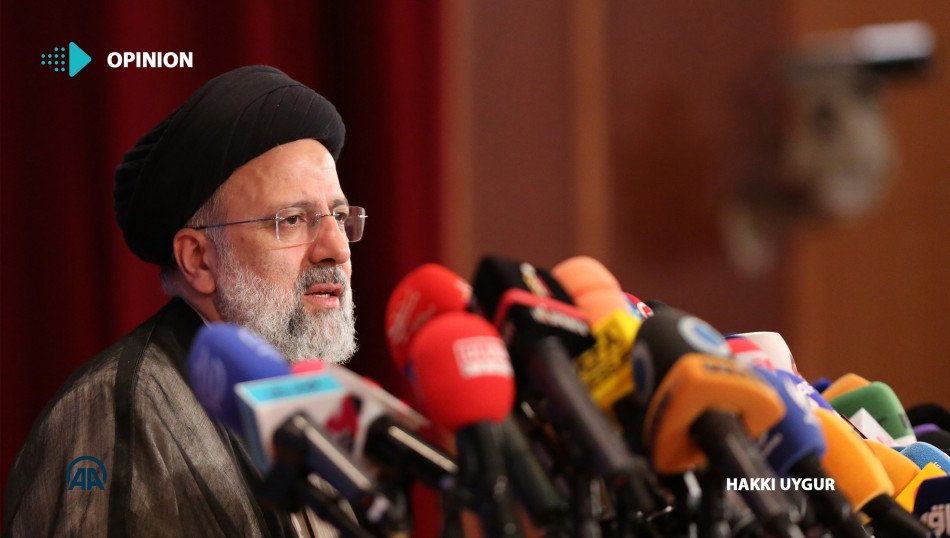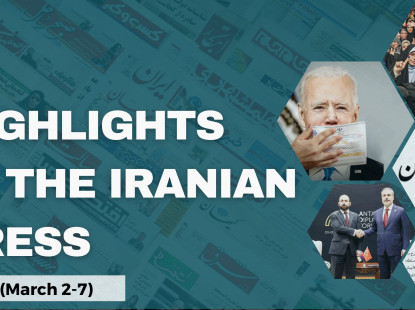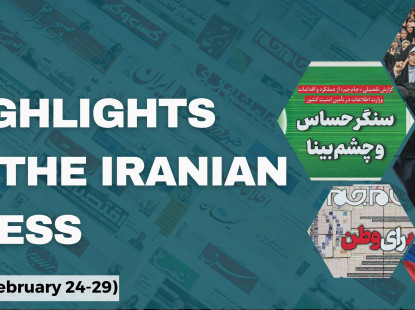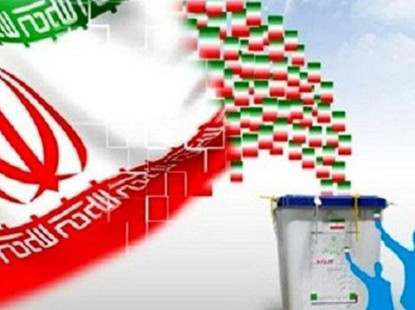Raisi and the New Iran
As we stated in the several analysis and evaluations on Iran and its current political system, when the current legal processes and the practical customs of the country are examined, the mechanisms of the Presidential and Parliamentary Elections provide crucial clues, even predictions about the final results of the elections. Simply put, the attitudes of the 12 members of the Guardian Council, comprising clergy and jurists, towards the determination of the candidates for nomination affect the election turnout and consequently allow to predict the result of the elections. In any circumstances in which the Guardian Council is tolerant as the primary institution that is responsible for the survival of the system, the turnout of the election significantly rises, as in the 2009 Presidential Election. In other circumstances, however, the turnout crucially falls, as it has been seen last July 18.
In this context, it has become a significant indicator for the election that Ali Larijani, who has served as the Speaker of the Parliament for several years, the former President Mahmoud Ahmadinejad, who has won the hearts of suburbanites and provincial people through his populist policies and discourses, and Mostafa Tajzadeh, who is acknowledged as one of the prominent theorists of the reformist urbanites were disqualified from the election. Although the prevention of the last two names’ nominations was not a surprise, disqualification of Larijani, who is from an ulama family and has served in the top-level offices of the state, in addition to bringing his family members to the agenda by several insults in the process have been crucial signals which show the rivalry between the power groups of the system. The claims regarding the division of the Guardian Council on the issue of Larijani and his disqualification by just one vote verify this situation. Even though Khamenei’s statement to conciliate Larijani did not bring any legal consequences, it has prevented him from being afflicted more.
In the analysis I wrote for the Agency, which was published a couple of weeks before the election, I stated that this situation is not only about the Presidential Election. On the contrary, it gives clues about the new era, which is characterized as the second phase of the Revolution by Supreme Leader Khamenei and the people who are close to him. In this regard, Ebrahim Raisi seems to be a favorable candidate also for the office of Supreme Leader as the successor of elderly Ali Khamenei, with his relatively young age, devotion to ideals of the Revolution, and his family and relational ties. Still, his election for the office is especially significant because he is not a political and public figure, his rhetoric is not so advanced, and he may gain administrative and political experience through the office. In this context, the candidates for nomination who could cause problems were disqualified through sophisticated political engineering as Vahid Haqqanian implicated, and four shield candidates were nominated against the remaining ineffectual candidates that prevented unintended consequences in the debates.
Thus, the election has passed as expected and Ebrahim Raisi has become the new President of Iran by 18 million votes, the 60% of the valid votes. There were 40% of turnout overall and 20% of turnout in the capital Tehran in the election. Invalid votes occupied second place by 4 million votes. Abdul Nasser Hemmati, the Governor of the Central Bank, who has been brought into the agenda and promoted on the social media by the efforts of the reformists as a final move, was able to get only 2.5 million votes and came after Mohsen Rezai, the constant candidate of every election. Nevertheless, the reformists’ “capacity for agenda building” has surprised even some observers. For instance, even the former Speaker of Parliament Karroubi, who has been under house arrest since the 2009 election and recently allowed to get in touch with outside, called for participation at the last moment and asked for support for Hemmati. Mir Hossein Mousavi, on the other hand, seemed to be better at reading the domestic balance of politics and the reactions of the public by embracing a different attitude.
Its Effects on the Domestic Politics
The domestic politics of Iran has been shaped by roughly two groups since the Islamic Revolution. The balance between former “right-left”, current “reformist-conservative” fractions, which has roots in the era before the Revolution, changed decisively on the behalf of the “rightists” after the death of Khomeini in 1989. The loss of Khomeini’s protection paved the way for the “leftist” fractions to fade from the scene or settle for passive jobs. However, the people who are close to these fractions organized through the leadership of people such as Mousavi Khoeiniha or Mohammad Khatami and achieved a remarkable return in the 1997 election with a transformation according to current conditions. Even though the conservatives took a lesson from the defeat and took necessary measures to prevent a similar outcome in the future, the fact that Ahmadinejad, the representative of the neo-conservative front, and Rafsanjani along with Nateq-Nouri, the fathers of the conventional right are offended, brought them near to “reformist” fraction. It has consequently caused an earthquake within the system. Even though the conservatives have survived these crises too, they could not prevent the election victory of Hassan Rouhani in the 2013 election. The reformist-moderate right alliance achieved another significant success and seized the most crucial political position in the country which can be got through the votes of the people.
The influential fractions within the system realized the fact that it is not sufficient to prevent reformist candidates, and the moderate right should also be blocked as a possible ally for the reformists. Consequently, they began to act for preventing a new Rouhani model. The unfortunate ending of Rouhani’s presidency, which started with high expectations and energy, have had also an impact on this process. Following the Nuclear Deal (JCPOA), which he signed with the global powers in the leadership of the USA, Rouhani’s assertive discourses targeting even Khamenei in the domestic politics and China in the foreign policy made visible his assumption about the level of his power. Nevertheless, Trump’s inauguration in 2016 and his withdrawal from the Nuclear Deal after two years, along with the heavy sanctions weakened Rouhani’s influence. Approximately 20% reduction of the country’s economy and the global COVID-19 pandemic have made Rouhani the most unsuccessful president in Iranian history. It explains why the public did not react against the veto of people who are close to him. Furthermore, the current economic situation of the country and non-existing growth rate for the last ten years had a negative impact on the presidential debates and paved the way for Raisi and his supporter candidates to represent the “Westernist-Liberal” cadres, which include Hemmati too, as the main reason for the collapse of the economy.
Nonetheless, the turnout rate has seriously undermined the emphasized claim of the Iranian system concerning that it is a populist administration if not democratic. For instance, the opponents make serious accusations by sharing one of Khamenei's speeches in a khutbah from the past years. In the speech, Khamenei argues that the turnout rate remains 30-40% in some countries despite all encouragement and propaganda, which is a disgrace for an administration and delegitimizes it. So, the deliberate vetoes of the Guardian Council in addition to the difficult socio-economic conditions of the country explain why the turnout fell to 20% in the city centers such as Tehran, Tabriz, and Shiraz. The Iran administration is aware of the fact that it has to cover the gap in its dual system, which it had carried out successfully until the current day. In this context, the greatest responsibility belongs to Ebrahim Raisi, for whom significant sacrifices have been made. Otherwise, if the political system continues to be a closed system, the despair and alienation from domestic politics will be more widespread among the reformist fractions, and the structure of foreign-based opposition may change.
In the overall framework of all the discussed issues above, Raisi will firstly try to manifest a comprehensive leader profile. He will take the necessary steps to show that he is not the president of only 28% of the people who voted for him but all the people. In this regard, he may provide opportunities for the offending figures from the moderate right circles, if not the reformists. Still, if he postpones the demands of neoconservative figures, especially the demands of the youth, he may face major critiques in the medium term. The economy constitutes one of the most significant areas of challenge for Raisi. The time will show how he and his cadre will fulfil their repeated concept of “resistance economy” and if the incentives in the manufacturing and construction industries will meet the expectations of the people. If Raisi could not provide visible progress in the short term, it would not only damage the social legitimacy, which has already been weakened. It would also significantly affect his plans for the post-Khamenei era. Therefore, it is possible to argue that the next one or two years are highly critical for Raisi.
The Foreign Policy and Raisi
Since Ebrahim Raisi’s all career has been built in the jurisdiction field, his views about foreign policy issues are not known exactly. Although he stated in the presidential debates that he will prioritize the relations with the neighboring countries instead of the great powers, it is not known how he will actualize it. Iran’s policies in the new era concerning Afghanistan, Iraq, and even Turkey, will majorly depend on the US policy of Raisi. Moreover, it is not expected for the new president to resist the revival of the JCPOA. As it is understood from the statements of the Foreign Minister Javad Zarif in the Antalya Diplomacy Forum, the Vienna talks seem to come to an end. In addition, it is a known fact that the main framework of Iran’s foreign policy is not determined by the elected president. However, Iran will not be the country that overcomes its issues with the Western world and integrated into the global system, as the reformists wish because the new Iran is identified with Raisi, who is on the US sanction list, and has got reactions from the Amnesty International, due to his role in the collective executions in 1988. Raisi will try to transform the relative relief that is provided by a limited and narrow agreement, into economic acquisitions and use it for strengthening his position in the country. Lastly, Raisi’s opinions about Turkey do not seem negative, in contrast to several reformists. Turkey’s facilitative role in Iran’s foreign trade, the relations of tourism, and transit cooperations will improve through a possible JCPOA 2 in the post-COVID-19 world.
This article was first published in 7.6.2021 at Anadolu Agency.











